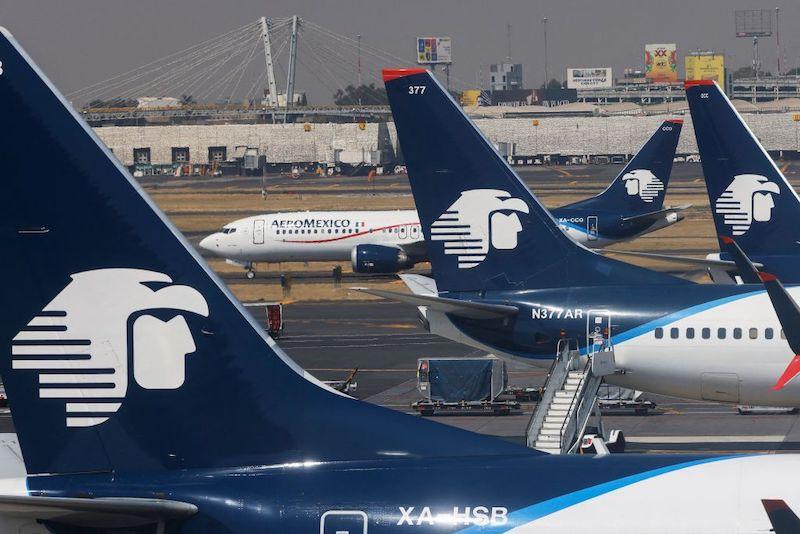
Mexican President Andres Manuel Lopez Obrador has reversed plans to allow cabotage flights in the country following strong opposition from domestic airlines and industry groups.
The proposals, which would have permitted foreign carriers to operate domestic routes in Mexico, were initially part of reforms to the General Law on Civil Aviation and Airports being discussed in the country’s Chamber of Deputies.
However, the President confirmed in a press conference that the final draft reform would not include the provision, saying that those opposed to the plans could “celebrate.” Despite this, he indicated the government would continue explore the introduction of cabotage in more depth.
Industry bodies have welcomed the decision, with the National Chamber of Air Transport (Canaero) releasing a statement applauding the reversal. “The airline industry will remain attentive to the legislative process and reiterates its commitment to work for the development of aviation for the benefit of Mexicans,” the organization added.
Cabotage is a practice that is restricted in many countries to protect the domestic aviation industry. The proposals for Mexico were first unveiled last December as part of a wider package of reforms.
Lopez Obrador had hoped that the move would increase competition, promote connectivity, and lower prices on routes across the country. Additionally, the President believed that the plan would boost operations at Mexico City’s Felipe Ángeles International Airport, which opened for commercial flights in March 2022.
Aeromexico, Volaris and Viva Aerobus were among the carriers in opposition. Speaking at Routes Americas 2023 in March, Aeromexico airport affairs director Abelardo Muñoz Martín pushed back against the notion that foreign competition would bring fares down–and that fares are excessively high to begin with.
“The reason the president is pushing this is that there is a misconception that airfares are high, and that competition will lead to lower fares, but it’s completely the opposite,” he said. “Because foreign carriers would operate the highest-demand routes and not the low-demand ones.”
Airline association ALTA agreed that foreign carriers would focus primarily on the main and profitable routes. “At the same time, it would reduce incentives to invest in national airlines, in developing national connectivity, even on less attractive routes, ultimately affecting flight prices and hurting employment and growth,” ALTA CEO José Ricardo Botelho said.
Seven operators provide scheduled domestic flights in Mexico at the present time, collectively offering some 1.53 million weekly seats. However, around 98.6% of capacity is controlled by three carriers: Volaris has 40% of the market, Viva Aerobus has 31.3% and Aeromexico has 27.3%.
On April 27, a new airline called Aerus will begin commercial operations in Mexico, becoming the eighth carrier to serve domestic routes. It will operate from a base at Monterrey International Airport in the northeastern Mexican state of Nuevo León serving four routes to Ciudad Victoria, Matamoros, Piedras Negras and Tampico. A fifth will operate between Matamoros and Tampico.
Aerus will initially start using three Grand Caravan EX aircraft and is seeking to fill a gap in Mexico’s market left by the demise of Aeromar, which ceased operations earlier this year. Aeromar suspended flights on Feb. 15 after 35 years of operation due to financial issues.
